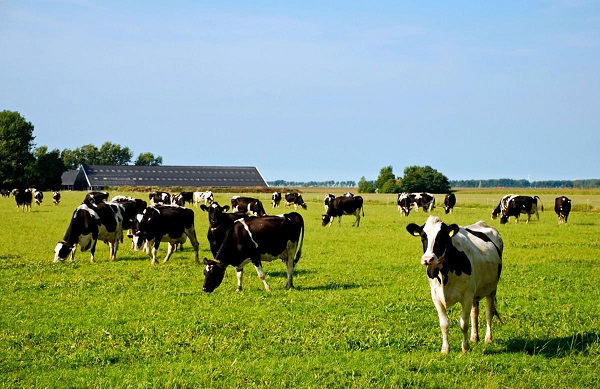
The role of global industrial livestock in the emergence and spread of viral infections similar to Covid-19 is recognised. It is estimated that 73% of emerging infectious diseases are of animal origin and that livestock in particular are responsible for the transmission to humans of many viruses, such as the coronavirus or that of influenza. By crowding a very large number of animals on limited areas, in close contact and marketed over long distances, as is particularly the case in the world for poultry and pigs, industrial breeding is likely to increase the transmission of disease.
Livestock is also the main cause of global deforestation, and research estimates that 31% of epidemics of emerging diseases - including HIV, Ebola and Zika - are linked to land use change.
According to Raymond Aendekerk, director of Greenpeace Luxembourg, "factory farming and the deforestation it entails to feed livestock (among others) are the ideal ingredients for future pandemics. If we continue to put humans and wild animals in contact, with cramped industrial farms as breeding grounds, the Covid-19 pandemic that we are currently experiencing will not be the last. With this crisis, the EU and the Member States must do more to support small and medium-sized farms. It is necessary as soon as possible to put an end to the subsidies without distinctions (ecological, local agriculture, etc.), injected in particular in the industrial production of milk and meat. Industrial agricultural methods based on inputs into technology and stables, as well as external chemical fertilisers and pesticides are neither resilient nor sustainable models of production. Luxembourg's Minister of Agriculture should commit to the European level to demand a real "New Green Deal" and act in Luxembourg for an essential reform of the agricultural sector. The “Biolandwirtschaft” action plan is a positive and important impetus.”
As part of European agricultural policy, the industrial livestock sector receives each year, directly and indirectly (via the production of animal feed) between €28 billion and €32 billion per year in public subsidies, i.e. 18 to 20% of the total EU budget. The vast majority of this money supports Europe's largest farms, which supply more than 72% of animal products within the EU, while small farms continue to disappear. Nearly 3 million livestock farms closed between 2005 and 2013, or almost a third of European farms.
Greenpeace has demanded a just and equitable transition by providing financial aid above all to local and ecological farmers and producers. Besides infectious diseases, factory farming contributes to other health problems, such as air pollution by ammonia emissions and drinking water by nitrogen. Finally, overconsumption of meat is associated with many health problems, including cardiovascular disease, cancer and type 2 diabetes.








